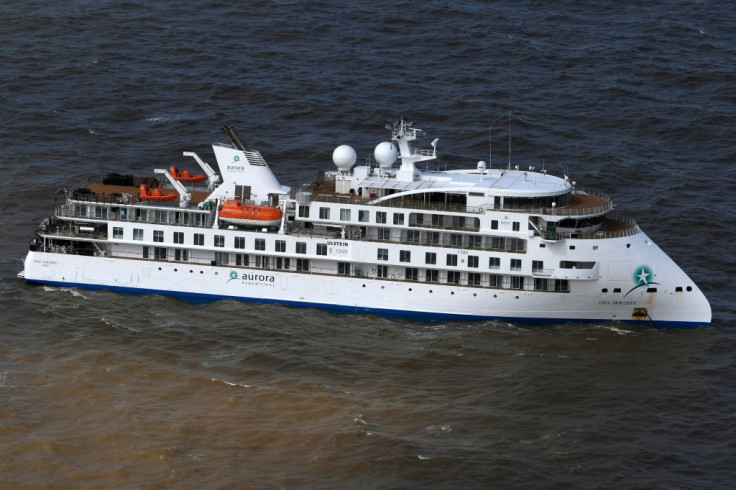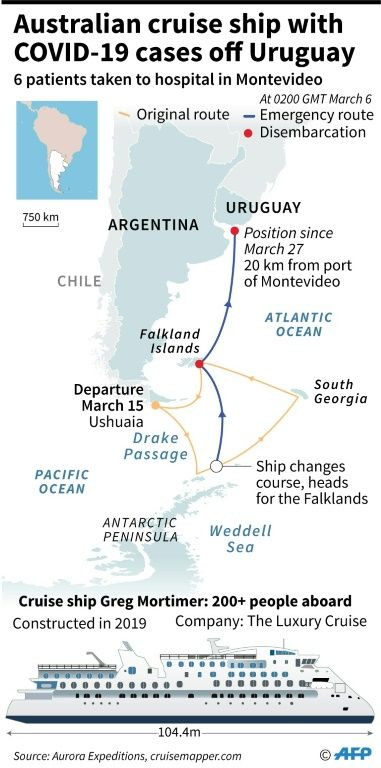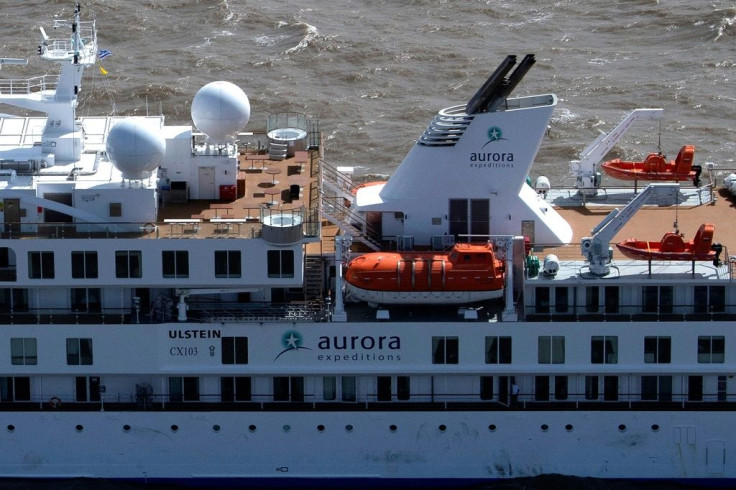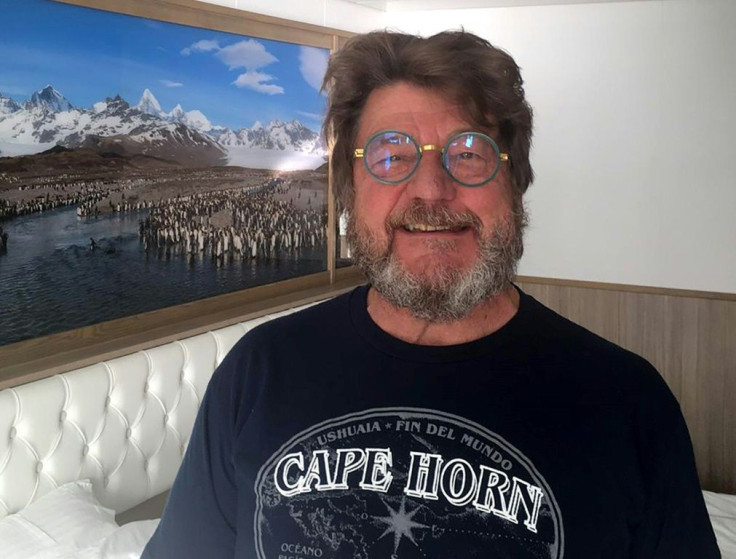Uruguay Approves Flight To Evacuate Aussies, Kiwis From Infected Ship

Uruguay said Tuesday it has authorized a humanitarian flight to evacuate Australian and New Zealand passengers stranded on a coronavirus infected cruise ship.
About 128 of the 217 people on board the Australian-owned Greg Mortimer -- including passengers and crew -- have tested positive for the deadly virus.
Six of those, three Australians, two Filipinos and a Briton, have been taken off for treatment in the capital Montevideo.
The plight of the Greg Mortimer is the latest affecting the global cruise industry, which has seen vessels refused entry to ports and others locked down after new-coronavirus cases were confirmed onboard during the pandemic.
The cruise ship's owner, Aurore Expeditions, has "contracted a medical plane... to repatriate the Australian and New Zealander passengers," Uruguay's foreign ministry said, adding that the plane had been given permission to arrive on Thursday.
About 100 Australians are aboard, and negotiations were underway to allow the New Zealanders to fly with them, Aurore said.
It said that of those still on the ship, no-one was suffering from a fever.
The Airbus A340 plane contracted to fly the Aussies and Kiwis home "is configured with medical facilities aboard... to look after the health and security of everyone," said Aurore.

The plane will carry passengers who test both positive and negative for the virus.
It is due to arrive from Portugal and then fly on to Melbourne, after which all passengers will be required to spend two weeks in quarantine.
Foreign Minister Ernesto Talvi said on Twitter that an agreement had been reached through "intense conversations and very close cooperation with the Australian government."

As for the European and American passengers on the Greg Mortimer, they must "wait until they test negative" before organizing their repatriation via Sao Paulo, Brazil, the ship's owner said.
There are five Britons on board, the British embassy in Montevideo told AFP.
"We are working relentlessly to find a way to bring them safely back to the UK," said spokeswoman Veronica Psetizki.
Some of those on the ship are keeping their spirits up despite the large numbers of passengers, mostly elderly people, to have fallen ill.

"Everybody wants to go home. It's not a nightmare but it's not the ideal situation," Charley Nadin, 67, an Australian anesthetist, told AFP by WhatsApp.
"There are a lot of people on board who've never been through any difficulties and this is pretty frightening for a lot of people."
He and fellow Australian Maurice Clifford, 71, an orthopedic surgeon, boarded the vessel in Ushuaia, in the far south of Argentina on March 14th.
They were due to travel to Antarctica, South Georgia and Elephant Island for the holiday of a lifetime.
But on March 21st with border closings and lockdowns in South America and Australia, the exploration was called off.
The Greg Mortimer -- named after an Australian mountaineer who scaled Mount Everest -- set sail for the Falkland Islands but was denied entry there as authorities did not have the facilities to cope with COVID-19 cases.
The ship headed on to the only port along the Atlantic coast of South America still open, Montevideo.
Although the ship has been anchored in the Rio de la Plata about 15 miles (24 kilometers) off the port for the last week, health authorities from Montevideo have been aboard to help passengers.
Uruguay's Health Minister Daniel Salinas told AFP on Tuesday that the six being treated in private clinics in Montevideo were in a stable condition.
Two were in intensive care.
According to a doctor who boarded the ship, Sebastian Yancev, the high infection rate was due to mistakes made in isolation measures, including leaving people who had tested negative with those who were positive.
Yancev said Ushuaia was the likely source of the contagion.
"The health authorities in Montevideo have been incredibly good and there is nothing but praise from all of us... their humanity and care for all of us here has been extraordinary," said Nadin.
Despite their ordeal, both Nadin and Clifford said they would like to come back, not just to finish their expedition but also to visit Montevideo.
"There's an irony there that we've been down there very carefully protecting the environment in Antarctica so we don't leave any bacteria or bugs down there and in the meantime we're spreading this disease amongst ourselves," said Clifford.
© Copyright AFP 2024. All rights reserved.





















